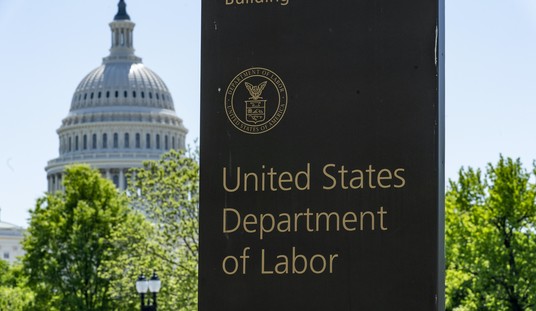
When Asia Bibi was sentenced to death for blasphemy in Pakistan and when a few hundred “Easter worshipers” in Sri Lanka were killed, most of the West was pretty silent. There were no vigils and protests and irate editorials about hate. But, let a singular event take place in one of the many self-hating Western nations involving a favored minority, and, well, you have something entirely different.
This is the case in New Zealand in the aftermath of the March 15 shooting at a mosque in Christchurch, New Zealand, that killed 51 and wounded 49 “Friday worshipers.” The first step of the reaction was to disarm law abiding New Zealanders. And now that country’s Prime Minister, Jacinda Ardern, is trying to turn that strategy into a worldwide jihad against speech that has not been approved by right-thinking government appartchiks. The vehicle is the “Christchurch Call.” You can read it at the bottom of this post.
Along with New Zealand, France’s Emmanuel Macron is leading the charge and signatories, thus far, include British Prime Minister Theresa May, Canadian Prime Minister Justin Trudeau, Jordan’s King Abdullah II, Amazon, Facebook, Google, Microsoft and Twitter. It is just a matter of time until Russia and China sign on.
The major hold out it the United States:
The United States broke with 18 governments and five top American tech firms Wednesday by declining to endorse a New Zealand-led effort to curb extremism online, a response to the live-streamed shootings at two Christchurch mosques that killed 51.
White House officials said free-speech concerns prevented them from formally signing onto the largest campaign to date targeting extremism online. But it was another example of the United States standing at odds to some its closest allies.
…
But the White House opted against endorsing the effort, and President Trump did not join the other leaders in Paris. The White House felt the document could present constitutional concerns, officials there said, potentially conflicting with the First Amendment, even though Trump previously has threatened to regulate social media out of concern that it’s biased against conservatives.
…
The White House’s decision against supporting the Christchurch Call drew criticism from some experts who’ve called for stronger regulation across the Web. Alistair Knott, a computer-science professor at the University of Otago in New Zealand, said the absence of a U.S. endorsement potentially would undercut the global argument for controlling how hate and violence spread online.“It seems insufficient to say that free speech prevents the U.S. from doing something about violent extremist attacks,” said Carl Tobias, a professor at the University of Richmond law school. “Congress should consider carefully crafted legislation that both protects core First Amendment interests and public safety.”
This is one of those situations where the Trump administration has proven an adherence to constitutional protections and to individual freedom that no one would have anticipated in 2016.
There is no legal reason for this document as “incitement” and “conspiracy” are already crimes. While one may not agree with bizarre political manifestos, whether by Unabomber Ted Kaczynbski or by Christchurch shooter Brenton Tarrant, the idea that they should be forbidden from posting their thoughts because they are dangerous should scare the living hell out of anyone with a pair of firing synapses. The world is full of “dangerous” books. Thomas Paine’s “Common Sense” was one of them. Machiavelli’s The Prince and Milton’s Paradise Lost have been declared subversive and banned an one time or another.
More to the point, you don’t defeat bad or stupid ideology by banning it and giving it a cachet of being counter-cultural. You defeat it by forcing it into the open, by debate and by convincing people that the ideas are wrong. But no one in this group cares about what the Christchurch shooter posted on line. Their objective is to be able to refuse to debate issues they’d rather avoid…like the impact of unfettered immigration…by declaring the very question to be hate speech produced by some phobia recently discovered by a leftwing sociology professor.
The agenda here is clear. This declaration seeks to give governments interested in limiting political debate and large multinational corporations with no loyalty but their bottom line and rent-seeking the ability to control and to criminalize what you say if your words don’t fall within a narrowly circumscribed range of behavior. That’s it. It is social control pure and simple.
The Trump administration is right to refuse to sign onto this nonsense and to enable America to continue to serve as a beacon of liberty and free speech in a world that seems to view both those as something hostile to the political status quo.
=========
=========
Like what you see? Then visit my story archive.
Follow @streiffredstate
I’m on Facebook. Drop by and join the fun there.
=========
=========
Christchurch Call
A free, open and secure internet is a powerful tool to promote connectivity, enhance social inclusiveness and foster economic growth.
The internet is, however, not immune from abuse by terrorist and violent extremist actors. This was tragically highlighted by the terrorist attacks of 15 March 2019 on the Muslim community of Christchurch – terrorist attacks that were designed to go viral.
The dissemination of such content online has adverse impacts on the human rights of the victims, on our collective security and on people all over the world.
Significant steps have already been taken to address this issue by, among others: the European Commission with initiatives such as the EU Internet Forum; the G20, and the G7, including work underway during France’s G7 Presidency on combating the use of the internet for terrorist and violent extremist purposes; along with the Global Internet Forum to Counter Terrorism (GIFCT); the Global Counterterrorism Forum; Tech Against Terrorism; and the Aqaba Process established by the Hashemite Kingdom of Jordan.
The events of Christchurch highlighted once again the urgent need for action and enhanced cooperation among the wide range of actors with influence over this issue, including governments, civil society, and online service providers, such as social media companies, to eliminate terrorist and violent extremist content online.
The Call outlines collective, voluntary commitments from Governments and online service providers intended to address the issue of terrorist and violent extremist content online and to prevent the abuse of the internet as occurred in and after the Christchurch attacks.
All action on this issue must be consistent with principles of a free, open and secure internet, without compromising human rights and fundamental freedoms, including freedom of expression. It must also recognise the internet’s ability to act as a force for good, including by promoting innovation and economic development and fostering inclusive societies.
To that end, we, the Governments, commit to:
Counter the drivers of terrorism and violent extremism by strengthening the resilience and inclusiveness of our societies to enable them to resist terrorist and violent extremist ideologies, including through education, building media literacy to help counter distorted terrorist and violent extremist narratives, and the fight against inequality.
Ensure effective enforcement of applicable laws that prohibit the production or dissemination of terrorist and violent extremist content, in a manner consistent with the rule of law and international human rights law, including freedom of expression.
Encourage media outlets to apply ethical standards when depicting terrorist events online, to avoid amplifying terrorist and violent extremist content.
Support frameworks, such as industry standards, to ensure that reporting on terrorist attacks does not amplify terrorist and violent extremist content, without prejudice to responsible coverage of terrorism and violent extremism.
Consider appropriate action to prevent the use of online services to disseminate terrorist and violent extremist content, including through collaborative actions, such as:
- Awareness-raising and capacity-building activities aimed at smaller online service providers;
- Development of industry standards or voluntary frameworks;
- Regulatory or policy measures consistent with a free, open and secure internet and international human rights law.
To that end, we, the online service providers, commit to:
Take transparent, specific measures seeking to prevent the upload of terrorist and violent extremist content and to prevent its dissemination on social media and similar content-sharing services, including its immediate and permanent removal, without prejudice to law enforcement and user appeals requirements, in a manner consistent with human rights and fundamental freedoms. Cooperative measures to achieve these outcomes may include technology development, the expansion and use of shared databases of hashes and URLs, and effective notice and takedown procedures.
Provide greater transparency in the setting of community standards or terms of service, including by:
- Outlining and publishing the consequences of sharing terrorist and violent extremist content;
- Describing policies and putting in place procedures for detecting and removing terrorist and violent extremist content.
Enforce those community standards or terms of service in a manner consistent with human rights and fundamental freedoms, including by:
- Prioritising moderation of terrorist and violent extremist content, however identified;
- Closing accounts where appropriate;
- Providing an efficient complaints and appeals process for those wishing to contest the removal of their content or a decision to decline the upload of their content.
Implement immediate, effective measures to mitigate the specific risk that terrorist and violent extremist content is disseminated through livestreaming, including identification of content for real-time review.
Implement regular and transparent public reporting, in a way that is measurable and supported by clear methodology, on the quantity and nature of terrorist and violent extremist content being detected and removed.
Review the operation of algorithms and other processes that may drive users towards and/or amplify terrorist and violent extremist content to better understand possible intervention points and to implement changes where this occurs. This may include using algorithms and other processes to redirect users from such content or the promotion of credible, positive alternatives or counter-narratives. This may include building appropriate mechanisms for reporting, designed in a multi-stakeholder process and without compromising trade secrets or the effectiveness of service providers’ practices through unnecessary disclosure.
Work together to ensure cross-industry efforts are coordinated and robust, for instance by investing in and expanding the GIFCT, and by sharing knowledge and expertise.
To that end, we, Governments and online service providers, commit to work collectively to:
Work with civil society to promote community-led efforts to counter violent extremism in all its forms, including through the development and promotion of positive alternatives and counter-messaging.
Develop effective interventions, based on trusted information sharing about the effects of algorithmic and other processes, to redirect users from terrorist and violent extremist content.
Accelerate research into and development of technical solutions to prevent the upload of and to detect and immediately remove terrorist and violent extremist content online, and share these solutions through open channels, drawing on expertise from academia, researchers, and civil society.
Support research and academic efforts to better understand, prevent and counter terrorist and violent extremist content online, including both the offline and online impacts of this activity.
Ensure appropriate cooperation with and among law enforcementagencies for the purposes of investigating and prosecuting illegal online activity in regard to detected and/or removed terrorist and violent extremist content, in a manner consistent with rule of law and human rights protections.
Support smaller platforms as they build capacity to remove terrorist and violent extremist content, including through sharing technical solutions and relevant databases of hashes or other relevant material, such as the GIFCT shared database.
Collaborate, and support partner countries, in the development and implementation of best practice in preventing the dissemination of terrorist and violent extremist content online, including through operational coordination and trusted information exchanges in accordance with relevant data protection and privacy rules.
Develop processes allowing governments and online service providers to respond rapidly, effectively and in a coordinated manner to the dissemination of terrorist or violent extremist content following a terrorist event. This may require the development of a shared crisis protocol and information-sharing processes, in a manner consistent with human rights protections.
Respect, and for Governments protect, human rights, including by avoiding directly or indirectly contributing to adverse human rights impacts through business activities and addressing such impacts where they occur.
Recognise the important role of civil society in supporting work on the issues and commitments in the Call, including through:
- Offering expert advice on implementing the commitments in this Call in a manner consistent with a free, open and secure internet and with international human rights law;
- Working, including with governments and online service providers, to increase transparency;
- Where necessary, working to support users through company appeals and complaints processes.
Affirm our willingness to continue to work together, in existing fora and relevant organizations, institutions, mechanisms and processes to assist one another and to build momentum and widen support for the Call.
Develop and support a range of practical, non-duplicative initiatives to ensure that this pledge is delivered.
Acknowledge that governments, online service providers, and civil society may wish to take further cooperative action to address a broader range of harmful online content, such as the actions that will be discussed further during the G7 Biarritz Summit, in the G20, the Aqaba Process, the Five Country Ministerial, and a range of other fora.













Join the conversation as a VIP Member